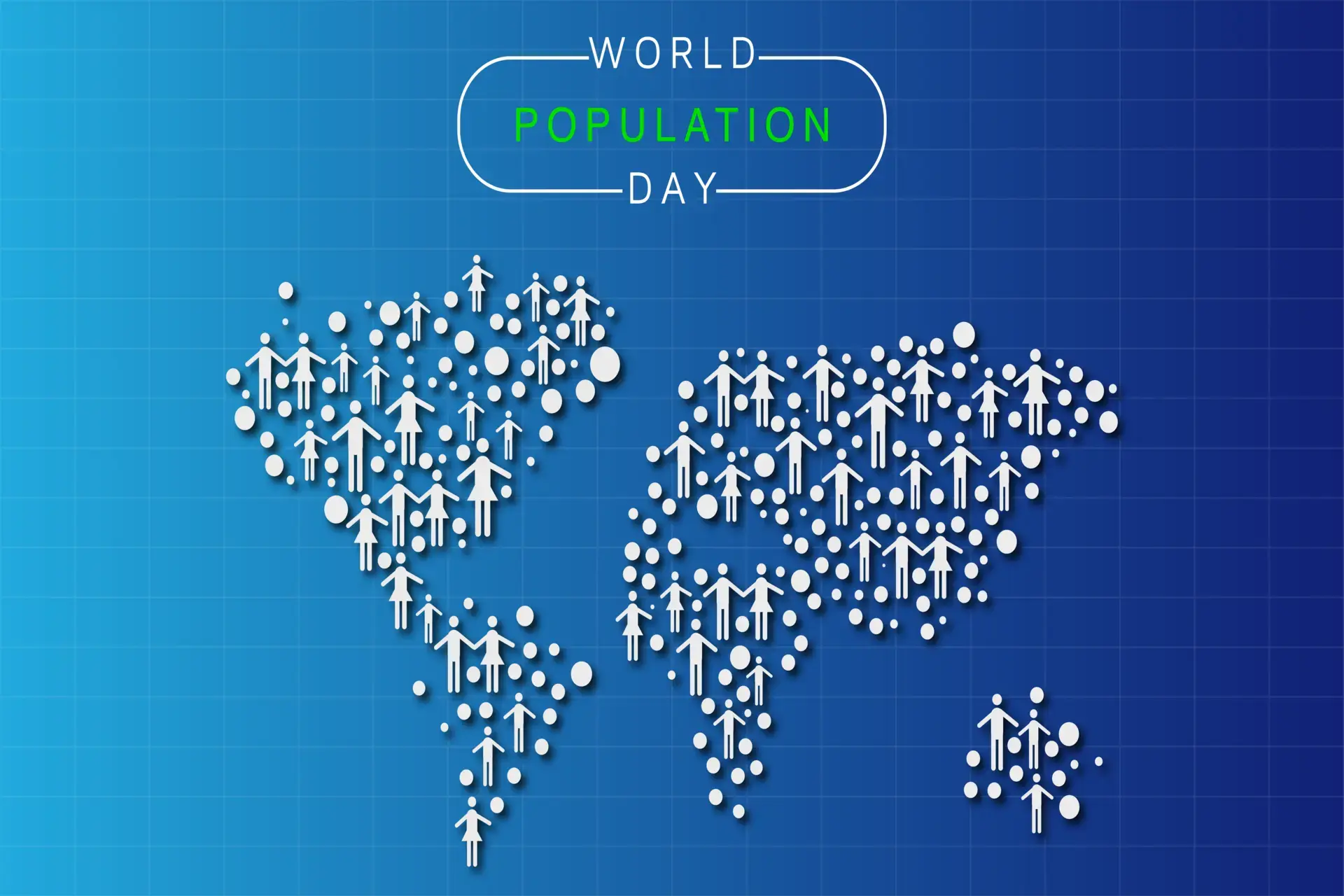As technology rapidly evolves, the role of women's economic empowerment transcends mere equality, emerging as a pivotal force shaping the future. Beyond the quest for balance, it embodies a strategic advantage, unlocking vast potentials that propel innovation, enrich economies, and craft resilient communities. This narrative unfolds at the intersection of digital transformation and societal progress, where empowering women economically is not merely a moral imperative but a linchpin for sustainable development. As we embark on this exploration, it becomes clear that women's empowerment in the digital era is not just about access to resources but about redefining their roles as creators, leaders, and innovators in a technology-driven world.
Consider the story of Joy Buolamwini, a Ghanaian-American computer scientist who uncovered racial and gender biases in facial recognition technology through her research at the MIT Media Lab. Her work led to increased awareness and significant changes in the industry, showcasing how women's involvement in technology can drive ethical innovation and ensure it serves a diverse society.
Or the journey of Arlan Hamilton, a woman who went from homelessness to founding Backstage Capital, a venture capital firm that invests in underrepresented founders, including women, people of color, and LGBTQ+ entrepreneurs. Her success highlights how empowering women can create more inclusive economies and support innovations that might be overlooked.
These real-life examples prompt us to consider critical questions: How can we further dismantle barriers to women's participation in tech? What systems can be implemented to ensure women access technological resources and lead their development and implementation? And how can women's economic empowerment through technology contribute to more equitable and sustainable societal progress?
As we delve into these questions, we must recognize that the journey toward women's empowerment in the digital era involves collective action from governments, businesses, and civil society. By addressing structural inequalities and fostering an environment that nurtures women's talents, creativity, and leadership in technology, we can unlock a future where innovation thrives on diversity and inclusivity.
Understanding Women's Economic Empowerment
Definition and Importance
Economic empowerment for women transcends the notion of equal pay or mere access to employment. It signifies a more profound control over their financial destinies, embracing the ability to participate in, contribute to, and reap the benefits from economic activities on an equal footing. This empowerment is pivotal because the ripple effects are far-reaching when women thrive economically. They invest in their families and communities, leading to elevated education levels, improved health outcomes, and enhanced societal well-being.
Consider the story of Ngozi Okonjo-Iweala, who shattered the glass ceiling as the first woman and African to lead the World Trade Organization. Her journey from Nigeria to the world stage exemplifies how women's economic empowerment can lead to influential leadership positions, impacting global monetary policies and practices.
Similarly, Malala Yousafzai's advocacy for girls' education underscores the link between women's economic empowerment and societal well-being. By championing education for girls, Malala has highlighted how empowering women and girls with education can lead to financial empowerment and upliftment of entire communities.
These examples prompt us to reflect: How can we create more pathways for women's economic empowerment? What measures can ensure women's equal participation in financial activities, especially in leadership roles? And how can we harness the potential of educated and economically empowered women to drive societal progress?
Global and Societal Impact
The global impact of women's economic empowerment is profound and multifaceted. Empowered women enhance productivity, foster economic diversification, and promote income equality, contributing to sustainable economic growth. Integrating women into the workforce, particularly in technology sectors, unlocks untapped talent, spurring innovation and a competitive edge. The confluence with technology not only carves out new opportunities for women but also equips societies with innovative solutions to challenges, highlighting the critical role of women's economic empowerment in technological advancement and societal progress.
The story of Sheikha Lubna Al Qasimi, the first woman to hold a ministerial post in the United Arab Emirates, illustrates the societal impact of women's economic empowerment. Her leadership in integrating technology and economic development has showcased how women in leadership can drive significant advancements in both policy and practice.
These narratives compel us to question: What strategies can be adopted to ensure more women are integrated into critical sectors like technology? How can societies be better equipped to recognize and harness the potential of women's economic empowerment for broader developmental goals?
In exploring these questions, it becomes evident that advancing women's economic empowerment is not just an act of justice but a strategic imperative. By dismantling systemic barriers and fostering an environment that nurtures women's economic participation, we unlock the door to a future where innovation is fueled by diversity and communities thrive on the equitable contribution of all their members.
Women's Empowerment Through Technology
Technology as an Enabler
Technology has emerged as a powerful enabler of women's economic empowerment, offering tools and platforms to bridge traditional barriers to women's economic participation. From mobile banking services that provide women with access to financial services to online marketplaces that enable women entrepreneurs to sell their products globally, technology offers myriad opportunities for women to engage with the economy on their own terms. Digital platforms also facilitate learning and skill development, with online courses and resources making education more accessible to women worldwide, especially in regions where traditional education may be restricted due to cultural or logistical reasons.
Moreover, technology can amplify women's voices and increase their participation in civic and societal discussions. Social media platforms, blogs, and online forums allow women to express their opinions, share their experiences, and advocate for their rights. This digital presence empowers individual women and helps shift societal norms towards greater gender equality.
Barriers and Opportunities
Despite the potential of technology to empower women economically, significant barriers remain. The digital divide disproportionately affects women, which refers to the gap between those who have access to modern information and communication technology and those who do not. In many parts of the world, women are less likely to have access to technology and the Internet due to economic, cultural, and educational constraints. This gap prevents women from accessing digital economic empowerment and personal development opportunities.
The digital divide is not just a matter of access but also of skills and representation. Women are underrepresented in technology-related fields and leadership positions within the tech industry, as highlighted by the fact that women hold only a fraction of tech jobs and are significantly less likely to be in senior roles or receive venture capital funding for tech startups. This underrepresentation perpetuates stereotypes and biases that discourage women and girls from pursuing careers in technology.
However, these barriers also represent opportunities for action. Initiatives aimed at providing women and girls with access to technology, digital literacy training, and mentorship can help close the digital divide. Programs encouraging women to pursue education and careers in technology can change the narrative around women in tech, showcasing them as innovators and leaders. Moreover, policies that support work-life balance provide for parental leave, and protect against discrimination in the workplace can make the tech industry more inclusive and attractive to women.
Investment in women's technology-driven entrepreneurship can also play a crucial role in women's economic empowerment. Supporting women-led startups drives innovation and promotes gender diversity in the tech ecosystem, creating role models for future generations of women in tech.
To truly leverage technology as an enabler of women's economic empowerment, a concerted effort from governments, the private sector, non-profits, and communities is needed. Such efforts should provide women with access to technology and ensure they have the skills, opportunities, and supportive environment needed to thrive in the digital world.
The Role of Women in Shaping the Tech Industry
In the expansive realm of the global workforce, women constitute 47.7%, yet their representation dwindles to a mere 26.7% within the technology sector. This disparity extends further into senior roles, where women's presence becomes even scarcer, particularly in positions such as Chief Technology Officers (CTOs) or heads of engineering. Despite women making up over half of the college-educated workforce in the United States, their footprint in the tech industry remains disproportionately small. However, mid-sized tech firms demonstrate a more robust representation of women, including women of color, suggesting these entities could serve as a model for enhancing diversity across the industry.
The leadership echelon in tech starkly reflects gender disparities, with only 10% of women attaining C-suite roles. The wage gap underscores this inequality further, revealing that female CEOs in tech earn 89 cents to every dollar their male counterparts make, with women of color earning even less. Yet, there's a silver lining as the global landscape shifts. From 2016 to 2022, the proportion of women in leadership roles has increased from 33.3% to 36.9%, signaling slow but positive progress towards gender parity in tech leadership.
Real-life examples underscore these statistics and illuminate the potential for transformative change. Ginni Rometty's tenure as IBM's first female CEO illustrates the impact of women's leadership in shaping corporate strategy and innovation within a global tech giant. Her leadership emphasized cognitive technology and cloud platforms and heralded a future where technology is not only a tool but a partner in human endeavors. Similarly, Reshma Saujani's Girls Who Code initiative tackles the gender gap at its roots by encouraging young women to embark on careers in technology and engineering. Her work illustrates the crucial role of education and mentorship in shaping the next generation of female tech leaders.
These stories raise essential questions: How can the tech industry further dismantle the barriers that prevent women from rising to top positions? What measures can be implemented to ensure a fair and equitable workplace that recognizes and rewards the contributions of women equally? Moreover, how can we guarantee that the progress in leadership roles continues to grow, reflecting the diversity and talent of the female workforce?
Women's journey in the tech industry is a testament to their resilience and innovation, navigating through a landscape that often presents more obstacles than opportunities. Yet, their increasing representation in leadership roles and the gradual narrowing of the pay gap indicate a positive trajectory toward inclusivity and equality. By fostering an environment that supports and celebrates women's achievements, the tech industry can unlock a future where innovation is driven by diverse perspectives, experiences, and talents, making it more equitable, prosperous, and resilient.
Strategies for Inclusive Growth
The persistent underrepresentation and discrimination against women in the tech industry underscore the urgent need for targeted strategies aimed at fostering inclusive growth. A promising approach observed is implementing mandatory gender bias training within hiring processes. Companies adopting this measure have reported a noticeable increase in female hires, suggesting it is a practical initial step toward enhancing female representation in tech. Additionally, reports indicate that up to 50% of women encounter gender discrimination during recruitment or within their work environments, pinpointing a critical area for tech companies to direct their inclusivity efforts.
The significance of providing promotion and professional development opportunities cannot be overstated. Research consistently shows that women, particularly those of color, face higher barriers to promotion compared to their male colleagues. This systemic inequality contributes significantly to the attrition of women from the tech sector, driven by insufficient advancement opportunities and challenging work-life balances. To counteract this trend, a comprehensive strategy is required, including equitable promotion practices, reevaluating professional development opportunities, and enhancing employee benefits to support a diverse workforce.
Real-world examples provide tangible evidence of the impact of these strategies. Salesforce, for example, has made headlines for its proactive measures in addressing the gender pay gap, demonstrating the potential of corporate commitment to inclusivity. Similarly, companies like Intel have been recognized for advancing women and underrepresented minorities through their Diversity in Technology initiative.
These initiatives raise essential considerations for the tech industry: How can other companies replicate the success of these programs? What structural changes are necessary to cultivate an environment where women enter the tech field and thrive and lead? And how can the tech community collectively work towards dismantling the systemic barriers perpetuating gender disparities?
Exploring these strategies and incorporating real-life successes suggest a path forward for the tech industry. By prioritizing inclusive hiring practices, actively combating gender discrimination, and ensuring equitable opportunities for advancement, the industry can achieve meaningful progress toward gender equity. The benefits of such progress extend beyond the individuals involved, promising broader societal and economic gains by leveraging the full potential of a diverse and inclusive workforce.
Envisioning a Future of Equality and Innovation
As we stand on the cusp of a new era in technology and society, the role of women's economic empowerment and their participation in the tech industry has never been more critical. The journey toward gender equity in tech is not just about correcting an imbalance but also unlocking a future prosperous with innovation, diversity, and economic prosperity. The potential of women in tech to drive transformative change is immense, with their participation fostering more creative solutions, equitable workplaces, and resilient communities.
Looking forward, it is imperative that the tech industry, alongside governments, academia, and civil society, continues to champion the cause of women's economic empowerment. By embracing strategies that promote inclusive growth—ranging from equitable hiring practices to comprehensive professional development opportunities—the industry can pave the way for a more inclusive and prosperous future. Emphasis on mentorship, support networks, and policy reforms will also play a pivotal role in ensuring that women enter the tech field and ascend to leadership positions where they can affect the most change.
Coditude's Support for Female Entrepreneurship and Women in Tech
In this landscape, Coditude emerges as a beacon of support for female entrepreneurship and women in tech. By providing resources, networking opportunities, and funding to women-led startups, Coditude actively contributes to reshaping the industry landscape. Its initiatives are designed to level the playing field and ensure that women entrepreneurs and tech professionals have the support they need to thrive. From mentorship programs pairing aspiring women techies with seasoned industry leaders to workshops and seminars on the latest technological advancements, Coditude is committed to empowering women. By focusing on breaking down barriers and fostering an environment of support and encouragement, Coditude plays a crucial role in the ongoing journey toward gender equity in the tech sector.
The vision for the future is one of equality and innovation, where the vital role of women in the growth and development of the tech industry is acknowledged and valued. All players within the ecosystem share the responsibility to support women's empowerment in tech, emphasizing the need for the tech industry to mirror the diversity of the global community it aims to serve. Coditude's initiatives are pivotal in this context, demonstrating a commitment to fostering an inclusive and equitable tech environment. Through a range of activities, including resources for women-led startups, networking opportunities, and educational programs, Coditude actively supports the advancement of women in technology. These efforts aim to create a balanced and forward-looking tech landscape, encouraging others to pursue similar pursuits to achieve an innovative and diverse future.







